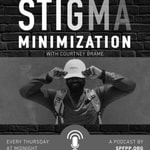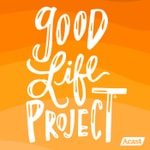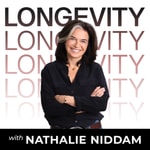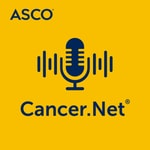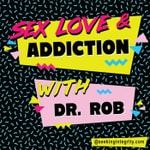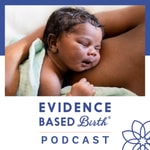Healing Conversations for Men Who Have Sex with Men – Détails, épisodes et analyse
Détails du podcast
Informations techniques et générales issues du flux RSS du podcast.
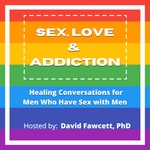
Healing Conversations for Men Who Have Sex with Men
Dr. David Fawcett
Fréquence : 1 épisode/35j. Total Éps: 45

Classements récents
Dernières positions dans les classements Apple Podcasts et Spotify.
Apple Podcasts
🇩🇪 Allemagne - sexuality
21/06/2025#93🇩🇪 Allemagne - sexuality
20/06/2025#76🇬🇧 Grande Bretagne - sexuality
02/12/2024#87🇬🇧 Grande Bretagne - sexuality
01/12/2024#42🇨🇦 Canada - sexuality
20/11/2024#80🇨🇦 Canada - sexuality
04/10/2024#79🇨🇦 Canada - sexuality
16/09/2024#63🇨🇦 Canada - sexuality
15/09/2024#43
Spotify
Aucun classement récent disponible
Liens partagés entre épisodes et podcasts
Liens présents dans les descriptions d'épisodes et autres podcasts les utilisant également.
See all- https://sexandrelationshiphealing.com/
273 partages
- https://seekingintegrity.com/
213 partages
- https://ncsfreedom.org/
173 partages
Qualité et score du flux RSS
Évaluation technique de la qualité et de la structure du flux RSS.
See allScore global : 73%
Historique des publications
Répartition mensuelle des publications d'épisodes au fil des années.
Addiction in the LGBTQ+ Community Isn’t a ‘Them’ Problem, It’s a We Problem.
Saison 1 · Épisode 45
jeudi 10 août 2023 • Durée 28:34
Dr. Wesley Detwiler is a licensed Clinical Psychologist practicing in California and he works closely with the LGBTQ+ community and those suffering from addiction and complex trauma. In this episode, Dr. Wesley talks about what sex positive really means when you are in sobriety. He also talks about how the community itself can ostracize men who are seeking recovery, and he also discusses how many men are unaware of the risks of sex and porn addiction when trying to get sober from drugs.
TAKEAWAYS:
[1:50] A little bit about Dr. Wesley.
[3:20] Dr. Wesley personally struggled with a drug addiction and he knew he had to get sober in order for him to be a successful psychologist.
[4:45] How does Dr. Wesley define sobriety?
[9:25] Everyone has an underlying need for connection.
[11:15] A lot of gay men feel like they’re damaged goods.
[12:15] How are we using sex to value or devalue ourselves?
[17:15] As a community, we can end up ostracizing the very people who need your help the most.
[18:30] It’s not a ‘them’ problem, this is a ‘we’ problem.
[20:20] What does it really mean to be ‘sex positive’ in sobriety?
[23:35] We need to dive deeper and really explore what intimacy and sex really means to the individual.
RESOURCES:
QUOTES:
-
“I didn’t have the tools to ‘adult’ properly. I didn’t have the glue that would stick all those things together in a meaningful or positive way.”
-
“For anyone struggling to get sober, do not give up. Sobriety is achievable. The only thing you can’t do is give up.”
-
“As a community, there’s work we can do around having a more healthy concept of what healthy sex is.”
Lust, Men and Meth translated to German: A conversation with Dr. Fawcett and Karl-Anton Gerber
Saison 1 · Épisode 44
jeudi 27 avril 2023 • Durée 27:35
Dr. David Fawcett, the author of Lust, Men, and Meth, has a conversation with the translator of the book, Karl-Anton Gerber, discussing how this project came about, his own story, and the chemsex scene in Germany.
German title: Lust, Rausch und Crystal Meth: Wege aus dem Chemsex-Konsum bei MSM
TAKEAWAYS:
[1:50] A little bit about Karl.
[3:20] Karl shares his introduction to drugs and how it has affected his life.
[7:10] Karl is HIV+ and shares how he first found out the news.
[9:10] Dr. David understands where Karl is coming from. For many gay men, they feel like “damaged goods.”
[9:40] What made Karl change his lifestyle and get clean?
[12:45] Karl shares how this book, Lust, Men, and Meth, changed his life.
[16:15] There are no reliable chemsex studies in Germany.
[20:00] Why did Karl decide to modify his foreword in the German version of his book?
RESOURCES:
Amazon link to German edition: https://tinyurl.com/bdhhj7n2
QUOTES:
-
“I had to admit I had a problem. That was the starting point to getting out of addiction.”
-
“My stable life and [the drugs] were separate, but when I was driving down the German highway, there was a little window between those two universes and I couldn’t hide any longer.”
-
“These new psychoactive substances are really scary. They’re just chemicals someone put together somewhere and now are selling it on the dark web.”
ADHD and Its Connection to Addiction with Todd Love
Saison 1 · Épisode 35
vendredi 19 février 2021 • Durée 29:21
Todd Love is a therapist and counselor, who was previously a DUI Defense Attorney and in the IT sector. He specializes in ADHD, addiction recovery, and more. As someone who has ADHD himself, Todd understands that it can be a particularly lethal combo to have ADHD and an addiction. Find out more about some of the symptoms of ADHD and how it ties into addiction in this week’s episode.
TAKEAWAYS:
[1:35] How did Todd get his start as a counselor?
[4:15] A little bit of insight into ADHD and how it’s diagnosed.
[7:45] What is the relationship between ADHD and addiction?
[10:15] Todd shares some stats about children with ADHD and its connection to addiction later in adult life.
[11:35] Cannabis users combined with ADHD struggle with motivation and keeping their life on track.
[16:00] Are people self-medicating to try to bring their lives back into focus?
[19:40] Is Adderall a good ‘study’ drug? The research says no.
[20:35] How can someone determine whether they have ADHD?
[22:50] Are there ADHD medications out there that are helpful?
[23:20] Enough sleep is key to helping build regularity in your routines, and to your ADHD.
[26:30] What are the effects of some of these drugs on children?
RESOURCES:
Nyulangone.org/files/psych_adhd_checklist_0.pdf
QUOTES:
- “What is addiction? Impulsivity, inability to delay gratification, novelty-seeking, and you can overlay that completely with ADHD.”
- “The research has shown that 15-25% of adults and 50-60% with substance use disorder have ADHD. I think that’s an outdated statistic. I’m hearing 50% of adults in treatment programs are there with undiagnosed ADHD.”
- “ADHD stimulant medications are the safest medicine in psychiatry, and in some ways, overall.”
- “ADHD is particularly responsive to interruptions in sleep.”
Pandemic, Relapses, and How We Can Improve Online Recovery Support with Dean Buckley
Saison 1 · Épisode 34
vendredi 12 février 2021 • Durée 30:38
Dean Buckley is a Licensed Marriage and Family Therapist and Certified Sex Addiction Therapist Candidate focusing on sex addiction, intimacy disorders, substance abuse, and healthy sex. Dean shares what kind of things he’s been seeing lately when it comes to his clients and navigating the pandemic. A lot of people have relapsed due to Covid and Dean explores better ways to support people in need and their recovery journey in this week’s episode.
TAKEAWAYS:
[1:05] We are unfortunately seeing a lot of relapses happening during Covid.
[2:45] What has Dean been seeing currently with people’s mental health and addiction?
[5:00] It’s very hard to separate your addiction from work life.
[6:00] One would expect alcohol rates to be less with the bars closed, but it’s not.
[7:10] What have been the differences in the east coast vs. west coast when it comes to drugs, addiction, and relapse during the pandemic?
[9:00] People are losing the in-person connection and accountability. Online meetings just don’t have the same impact.
[13:15] Dr. David has recognized that his emotional bandwidth is a lot shorter now with everything going on. Dean also agrees.
[18:05] Dean has lost a couple of people this year and there has not been enough opportunity to gather and grieve with your community.
[19:25] Reach out to somebody every day. One call saves two lives.
[22:25] Despite how awful the pandemic has been, there have been some blessings.
[24:55] What advice does Dean have for the LGBTQ community?
[27:25] Final words of wisdom with Dean on how to survive this marathon of a pandemic.
RESOURCES:
QUOTES:
- “It’s so hard to separate your addiction from work life when you’re sitting at home in front of screens, which are hugely triggering for a lot of people.”
- “There’s a lot of resistance to going online. Zoom meetings just don’t have the same impact for them.”
- “Addiction is isolation and sobriety is community. We’ve seen that in action with this great social experiment.”
- “We may not go back to the way we functioned before, so working with a therapist online is not a bad substitute.”
From Supporting Recovery to Gender Transition: The Importance of Nutrition in the LGBTQ Community with Lulu Cook
Saison 1 · Épisode 33
vendredi 29 janvier 2021 • Durée 33:00
Lulu Cook is a dietitian, counselor, and nutrition therapist. When one of her loved ones identified as transgender and began to transition, she looked high and wide to find food resources to help them through their journey and better fuel their body. She couldn’t find any information! Today, Lulu educates how the LGBTQ community is underserved in this area and some of the food concerns you need to think about if you’re in recovery or transitioning into a new body.
TAKEAWAYS:
[1:45] Are the nutritional/food needs of the LGBTQ community really that much different from the hetero community?
[5:30] Disordered eating and body dissatisfaction are huge in lesbian, gay, and trans populations.
[6:15] Gay men struggle with aging. They often feel invisible as they get older.
[8:55] The overall message you get as an LGBTQ member is that you’re not normal, and that’s not okay.
[9:40] When it comes to drug addiction and recovery, Lulu shares some of the challenges people might be facing when it comes to getting the right nutrients.
[14:45] What foods should you be eating when you’re in recovery?
[20:15] How can we speed up the healing of the dopamine receptors?
[23:15] Lulu couldn’t find any information about diet and nutrition for trans people undergoing a transition. However, she sheds some light into what health risks you need to think about when undergoing hormonal therapy.
[26:35] Unfortunately there’s still a lack of research on the health risks of hormonal therapy.
[27:30] What’s Lulu’s latest book about?
[29:45] Interested in queer health? Please consider signing up for a study conducted by the University of California at San Francisco.
RESOURCES:
QUOTES:
- “When our dopamine receptors are inpaired due to substances, it impairs our ability to assess hunger and the reward value we get from eating.”
- “Some of the side effects of hormonal therapy are changes of body composition, weight gain, blood lipid values, bone composition is also likely to change.”
- “Trans men, F to M, are likely to have increased risks for lipid values/blood fat values, higher risks for cardiovascular disease, hypertension and type 2 diabetes.”
- “Trans women, M to F, who are on estrogen therapy, have higher risks of different kinds of embolisms and strokes, as well as high hypertension and type 2 diabetes.”
Don’t Throw Away Your Unused Meds! Donate Them Instead with Jesus Aguais
Saison 1 · Épisode 32
lundi 2 novembre 2020 • Durée 29:49
Jesus Aguais Founded Aid for AIDS International with the idea of collecting unused and unexpired HIV medication and sending it to HIV+ people in low-income countries who do not have access to these medications. Originally from Venezuela, Jesus moved to New York City in 1989 and has been involved in AIDS advocacy groups since then. Today, he shares what his organization is doing to help our brothers and sisters outside of the U.S. who have no voice.
TAKEAWAYS:
[1:45] What is Aid for AIDS about?
[6:35] Jesus’s story is a powerful reminder that one person can make a difference.
[11:10] Jesus not only is collecting excess HIV medication and sending it abroad to low income countries, but he's now started to do it for cancer medicine as well.
[12:45] Yes, we are lucky to live in the United States, but we’re part of a larger community.
[18:45] A woman living with HIV in Egypt has no voice. The same is true with a gay man living with HIV in Guatemala. So many countries still have stigma that you have HIV because you’re a sinner.
[19:30] It’s just as important to give support to these people so that they can heal from social stigma. They’re not bad people. They’re good people who deserve love.
[22:00] Jesus shares how his program has impacted and benefitted highschoolers. It was deployed in 8 Latin American countries and it reached over a million youth.
[24:10] Aid for AIDS is the number one provider of HIV medicines to migrants in Colombia.
[27:25] How can you help? If you have unused, unexpired medicine, please donate it to Aid for AIDS.
RESOURCES:
QUOTES:
- “It goes beyond providing HIV meds, what is important is working on helping that person heal themself, finding tools to know that they’re loving human beings. They’re just a victim of a false belief system.”
- “There’s almost 5 million Venezuelan refugees in Latin America, so we provide services for them. We are the number one provider of HIV medicine to migrants in Colombia.”
- “Every bottle of medicine will save somebody’s life in a low-income country around the world.”
- “We have so many things here in the US that we don’t know that bottle of medicine, someone is dying someplace in the world because they don’t have it. You will save somebody’s life.”
All Your Inner Child Wants is Comfort — Eddie Capparucci
Saison 1 · Épisode 31
lundi 14 septembre 2020 • Durée 29:40
Eddie Capparucci specializes in treating sexual and pornography addictions and is also the author of the new book, “Going Deeper: How the Inner Child Impacts Your Sexual Addiction.” In this episode, Eddie explains the 9 inner children a lot of men face, some of the common triggers, what to do when your inner child comes up, and how to make changes for the better.
TAKEAWAYS:
[0:45] A little bit about Eddie and the work that he does.
[2:55] What is the Inner Child Recovery process all about?
[5:40] When you understand why sex has a stronghold in your life, you become empowered to make a change.
[8:05] Eddie shares an example of how certain events can trigger your inner child.
[11:35] There are 9 different types of inner children.
[17:15] For a lot of men, understanding their inner child unlocks a lot of understanding that other therapists could not help them with.
[19:25] Now that you know what your inner child is, what do you do when it becomes activated?
[24:25] The key to all of this insight is mindfulness. What does that look like?
RESOURCES:
QUOTES:
- “The inner child only wants one thing. Only one thing. Comfort. For the men I work with, that comfort they found in sexual activity.”
- “The child is stuck in this time warp where he is running just based on emotional thinking.”
- “When I become mindful and am able to recognize what’s going on around me, how can I help those who I love, then we wind up growing. That’s growth.”
- “I need my clients to be mindful because I need them to be aware of their triggers that happen, but also be mindful of the fact it’s not all about them.”
You’re NOT Damaged Goods! — Mark Anthony Lord
Saison 1 · Épisode 30
jeudi 27 août 2020 • Durée 28:04
Mark Anthony Lord is a spiritual teacher and helps the LGBTQ community get in touch with their spiritual side. As a gay man, Mark Anthony was told all his life that he was unloveable and that God hated him. However, Mark Anthony decided he wasn’t going to let that narrative control him anymore. He wanted to be connected to a higher power, he wanted to be spiritual, which is why he decided to redefine his relationship with God.
TAKEAWAYS:
[2:00] A little bit about Mark Anthony and the work that he does.
[3:25] Mark Anthony is a gay man with a spiritual and religious background and understands the struggles the gay community has with God and religion.
[5:05] Mark Anthony was 25 when he ended up in a private treatment center in Canada.
[6:30] Mark Anthony spent years re-defining his relationship with God.
[9:25] If you want a spiritual life, it’s absolutely available to you. It can be very personal to you.
[11:40] If you’re not connected with your own spirit or yourself, how can you be connected with others?
[13:35] What happens if you believe you’re damaged goods?
[17:50] Mark Anthony offers some self-care tips to help you break out of this ‘damaged goods’ thinking.
[20:05] Forgiveness is very misunderstood.
[23:50] Just like you don’t just go to the gym once and forget about it once, the same applies to forgiveness.
RESOURCES:
QUOTES:
- “We can’t turn to God for love and support because the one I was told about didn’t want me and didn’t like me.”
- “My spirituality made me face [my damaged goods narrative] and go, is that true? Hell no!”
- "There is so much pain around forgiveness and one of the things is we think we’re the ones that do it.”
- “Your higher power’s job is to make forgiveness happen and your job is to activate it and keep practicing it.”
Overcoming Childhood Sexual Abuse — Carol Teitelbaum
Saison 1 · Épisode 29
jeudi 30 juillet 2020 • Durée 33:32
Carol Teitelbaum is a Licensed Therapist and has been practicing since 1985. She helps her patients with life issues such as addictions, relationship problems, low self-esteem, self-harm, and men surviving child abuse. She is also the Co-Founder of the Creative Change Conferences, a resource for those experiencing addiction, depression, and who are survivors of child abuse. In this episode, Carol shares her journey and some of the reasons why abuse victims continue the cycle of abuse in their own households.
TAKEAWAYS:
[2:00] A little bit about Carol and her background.
[3:00] Why do abuse victims continue the cycle of abuse when they themselves have been abused?
[6:10] When we look back, we don’t see what the true reality was and how small we were at the age of 4-8 years old. We think we were bigger than we actually were and we always try to protect our parents.
[6:25] Why don’t boys tell people about what’s going on?
[10:55] Abuse and homosexuality. What’s happening there?
[13:40] For a survivor, having someone get to know you is the worst thing in the world.
[15:30] If a child has one, just one adult in their life who believes in them, they can make it.
[18:00] Women are becoming harsher with their children right now as everybody is housed under one roof.
[20:00] What is the ACE study?
[21:00] There is hope! Many of these men are healing.
[23:45] What kind of triggers do survivors experience in adulthood?
[30:15] What is the Creative Change Conference about?
RESOURCES:
Email Carol: CarolTeitelbaum@yahoo.com.
QUOTES:
- “It’s not about sex, it’s about power. Where are they going to get the most power? Abusing someone who is powerless.”
- “It’s a come here, go away effect to their partner. I want you but not too close.”
- “That’s how a survivor feels, if you really know me, you’re going to run away because why would you want me, I’m so damaged. That hurts relationships so badly.”
- “It’s the first time ever minors make up half of the visitors to the National Sexual Assault Hotline.”
Betrayed by Your Body? Heal Your Sexual Self — Suzie Le Brocq
Saison 1 · Épisode 28
lundi 13 juillet 2020 • Durée 28:33
Suzie Le Brocq is a Board Certified Sex Therapist and Transgender Care Therapist. Suzie has worked in the addiction treatment field for more than 15 years. Currently, Suzie is working on and studying the psychosexual effects women have when they have an ostomy or another major surgery that can deform/change the body. Suzie shares what women typically go through, their concept of sexual self, and how these concerns apply to men and women.
TAKEAWAYS:
[1:00] A little bit about Suzie.
[2:40] What are the psychosexual effects on women who have an ostomy?
[7:30] Losing the ability to control your bowels can feel very degrading and shameful.
[10:25] Suzie dives deeper into the definition of your ‘sexual self’.
[12:15] Our sexual self is developed from the sexual stories that we’ve been told while growing up.
[13:15] Some of us have an idea that sex should be a certain way, to look a certain way, and sound a certain way, and then suddenly that can be changed in an instant with a diagnosis.
[15:00] Do men and women see their sexual selves differently?
[20:15] Suzie felt her body let her down and felt very betrayed by her body.
[23:15] Partner acceptance is key to healing.
[24:30] When you’re sick, your partner can take on the role of a caregiver, but as you start to get better, that caregiving role might not go away.
RESOURCES:
QUOTES:
- “The sexual self-concept, it’s our own personalization of sex, your attitude, and how we feel about sex in general, and how we feel about ourselves as sexual beings.”
- “Our sexual self-concept is developed, to some degree, from the sexual stories that we’re told growing up. Our weight, our body image, our sexuality.”
- “So much of the images we see in the media, messages that portray the sexual self, is; to some degree; being something that it isn’t for most of us.”
- “Our bodies house our sexuality and it’s through our bodies, essentially, that our sexuality finds expression.”


